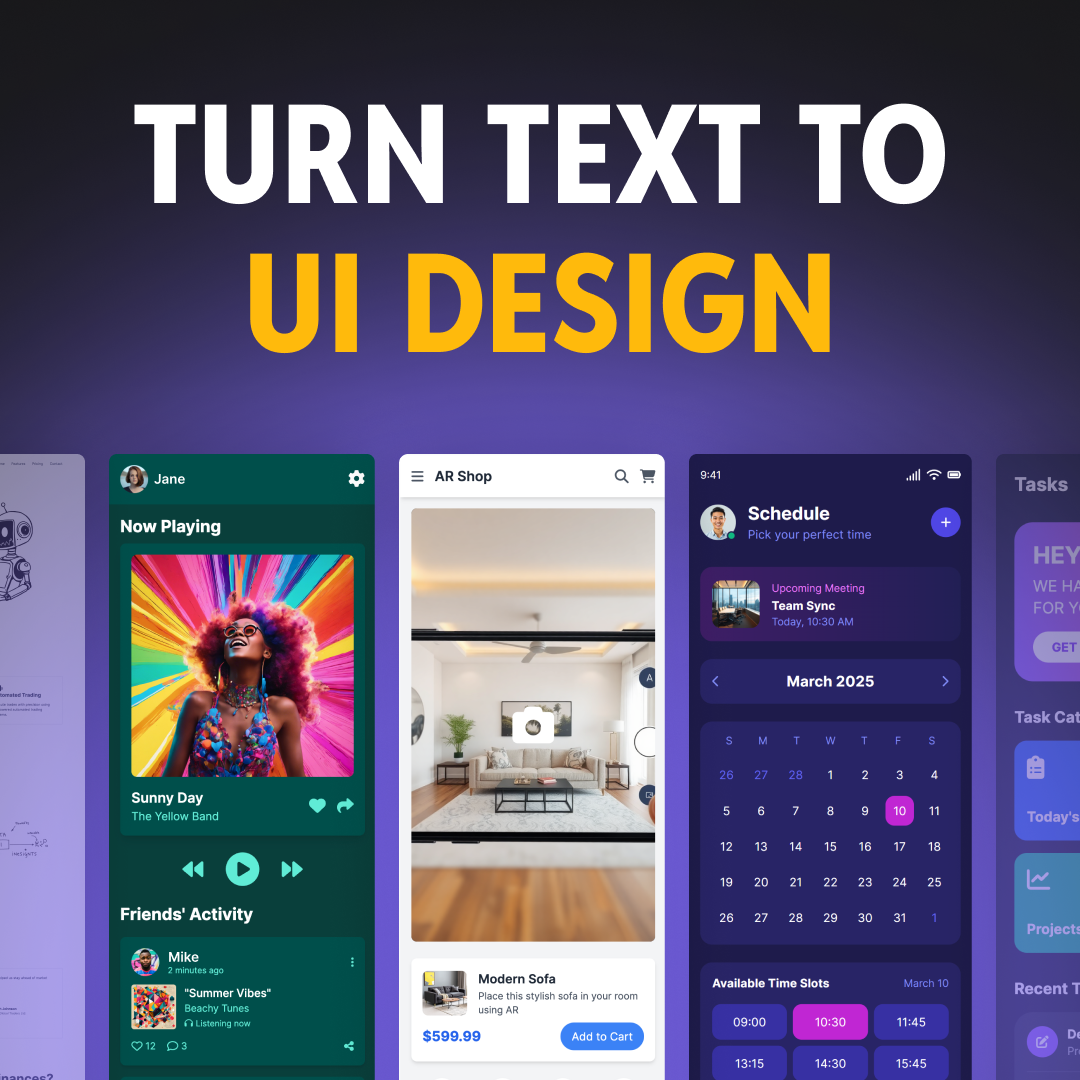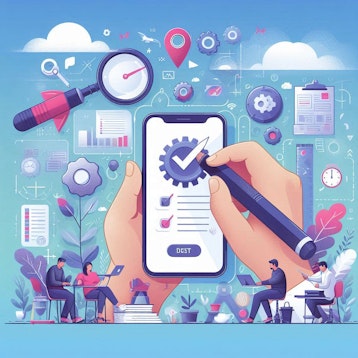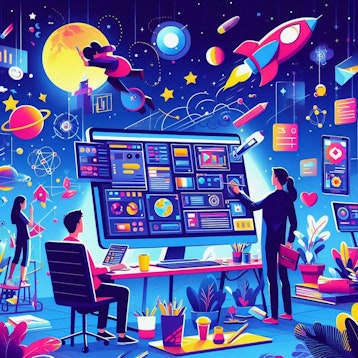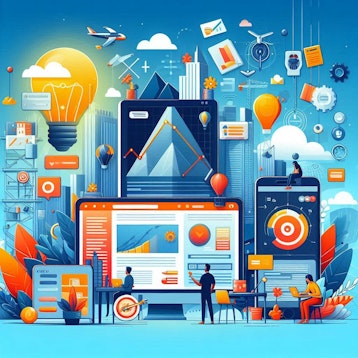Artificial Intelligence (AI) represents a paradigm shift in project management, revolutionizing how projects are planned, executed, and completed. AI tools extend far beyond mere automation by including advanced features like machine learning, predictive analytics, and intelligent decision-making that provide valuable insight into various aspects of project management and allow managers to formulate adaptable plans in response to changing project demands.
AI project management services democratize project administration for users ranging from large corporations to individual freelancers. Their wide application showcases AI's capacity to transform project management at multiple operational scales - leading to more effective, proactive, and data-driven approaches in project administration.
As we delve into the intricate world of AI in project management, it's essential to understand its multifaceted impact. This exploration is not just about the tools themselves but also about how they reshape the very fabric of project management, fostering a more efficient, proactive, and data-driven approach.
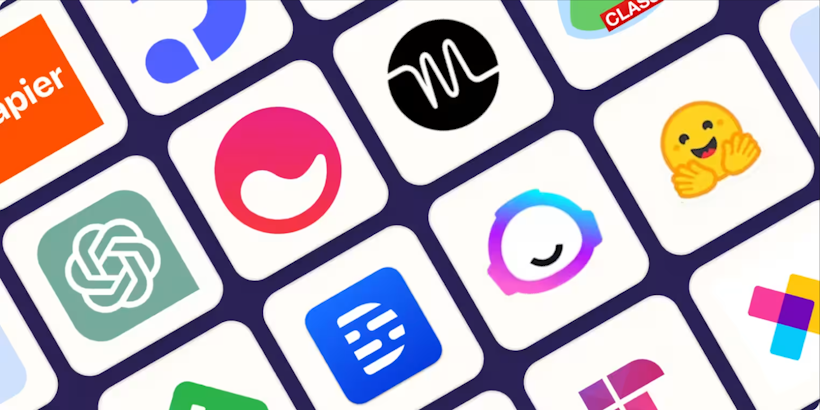
Why Businesses Need AI Tools for Project Management
The adoption of AI tools for project management is a critical strategic move for companies, individuals, and small agencies alike, each with distinct yet overlapping benefits. Let's examine some of the goodness that abounds when companies, individuals, and small businesses embrace project management tools in their operations.

The Ultimate Guide for UX Designers
The only ebook you'll ever need to master AI for UX design.
Get 30% Off TodayFor Companies:
In a competitive business environment, companies are constantly seeking ways to enhance efficiency and productivity. AI tools in project management help achieve these goals by automating routine tasks, thereby freeing up time for strategic thinking and innovation.
Enhanced Efficiency and Productivity: Automates routine tasks, allowing focus on strategic planning and innovation.
Informed Decision Making: Offers real-time data and analytics for swift, informed decisions.
Optimal Resource Utilization: Improves resource management, using human and material resources effectively.
Precision in Project Execution: Reduces human error, enhancing accuracy in project planning and execution.
Contributes to Business Growth: Significantly aids in project success, leading to overall business expansion.
For Individuals:
Independent professionals, solopreneurs, and freelancers can leverage AI tools to handle complex tasks that would typically require a team. These tools offer organizational aids, from scheduling to budget tracking, making it feasible for individuals to manage larger and more complex projects effectively.
Management of Complex Tasks: Enables handling of tasks typically needing a team.
Organizational Aids: Offers tools for scheduling, budget tracking, and more.
Insights into Work Patterns: Predictive analytics provide valuable workflow optimization insights.
Enhanced Productivity: Helps in managing larger, more complex projects efficiently.
For Small Agencies:
Small agencies, often limited by resources, can benefit immensely from AI project management tools. These tools can level the playing field, allowing small teams to compete with larger organizations by enhancing their project management capabilities.
Competitive Edge: Levels the playing field with larger organizations.
Automated Administrative Tasks: Manages routine tasks, client communications, and project tracking.
Quality Work Within Deadlines: Ensures timely delivery of quality work despite tight deadlines.
Scalability: Enables efficient management of an increasing number of projects as the firm grows.
These points underscore the necessity of advanced project management technologies across different scales of operation, emphasizing their role in driving growth, efficiency, and competitive advantage.
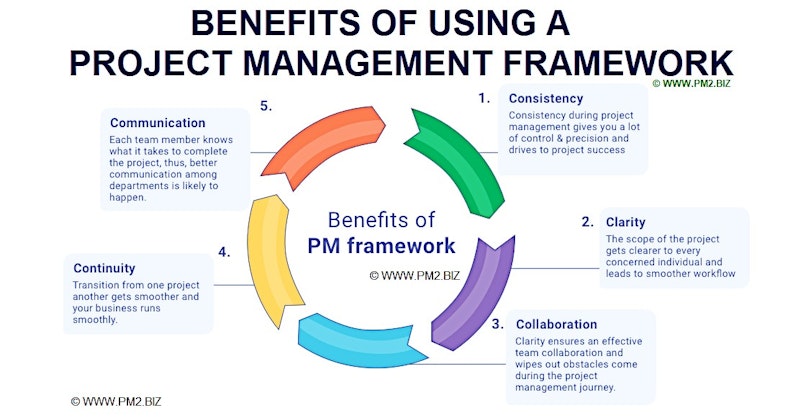
Top 10 AI Tools for Project Management
In the realm of project management, AI tools have emerged as vital assets, offering an array of functionalities tailored to enhance efficiency and productivity. Let's explore some of the best AI tools that are making significant strides in project management.
1. Jira by Atlassian:
Primarily known for its stronghold in agile project management, Jira stands out with its robust features like sprint planning, issue tracking, and user story mapping. It's particularly favored in software development circles for its ability to adapt to agile frameworks. Jira's AI components help predict project timelines and allocate resources efficiently, making it a top choice for teams seeking a comprehensive and flexible project management tool.
Key Features:
Agile project management focus
Sprint planning, issue tracking, and user story mapping
Adaptable to various agile frameworks
AI for predicting project timelines
Efficient resource allocation features
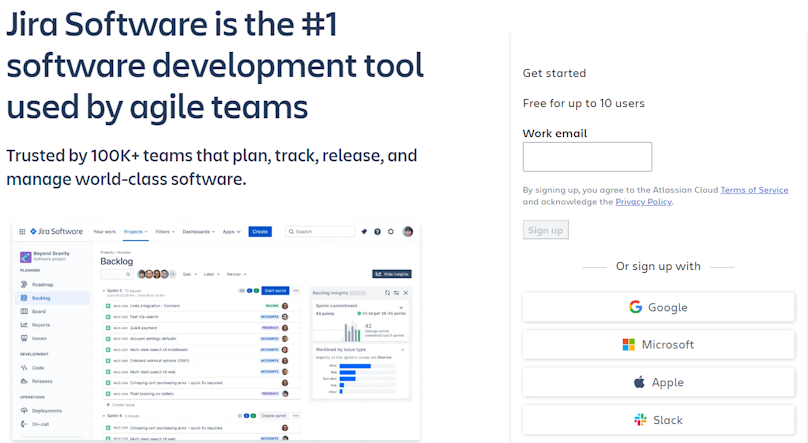
2. Asana:
Asana has carved a niche in the project management world with its user-friendly interface and powerful task management capabilities. It excels in helping teams organize work and track project progress in real time. Asana's AI capabilities shine in areas like workflow automation and bottleneck identification, ensuring that projects stay on track and teams remain aligned with their goals.
Key Features:
User-friendly interface
Powerful task management capabilities
Real-time project progress tracking
AI in workflow automation and bottleneck identification
Suitable for aligning team goals
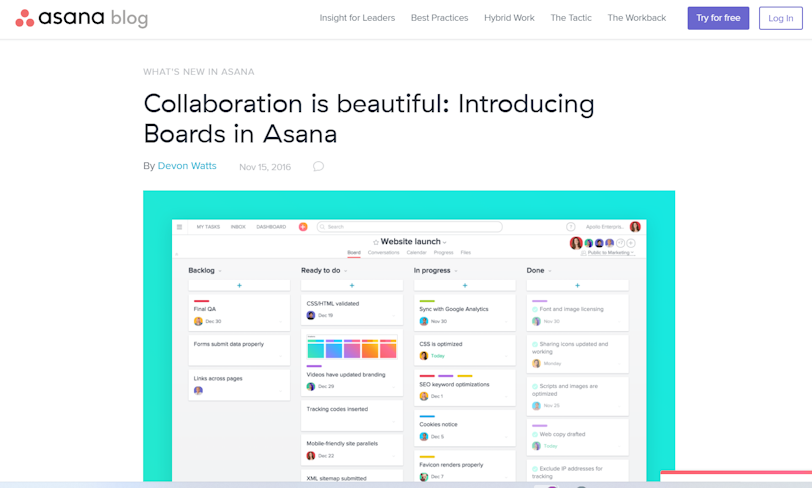
3. Monday.com:
Known for its visually appealing design and high customizability, Monday.com offers a unique approach to project management. Its AI features include automated task assignments based on team members' workload and expertise, predictive analytics for project planning, and real-time progress tracking. Monday.com's adaptability makes it suitable for a wide range of industries and project types.
Key Features:
Visually appealing design
Highly customizable
Automated task assignments via AI
Predictive analytics for project planning
Real-time progress tracking
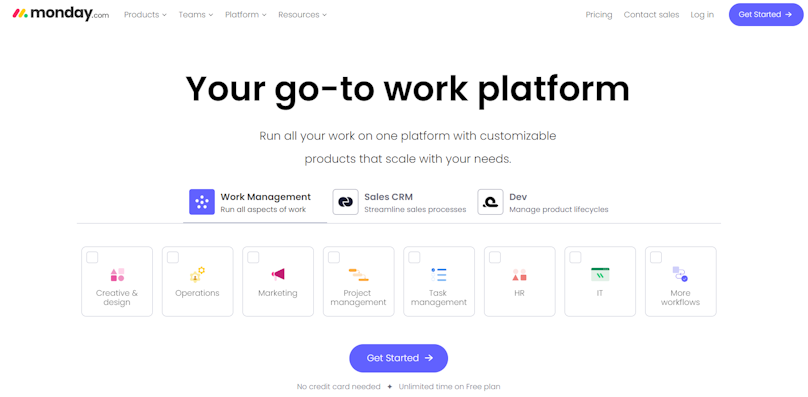
4. Wrike:
Wrike stands out for its flexibility and scalability, catering to teams of all sizes. Its AI capabilities include intelligent task automation, real-time collaboration tools, and detailed analytics for performance tracking. Wrike's strength lies in its ability to provide a centralized platform for managing complex projects with multiple stakeholders.
Key Features:
Flexible and scalable for all team sizes
Intelligent task automation
Real-time collaboration tools
Detailed performance analytics
Centralized platform for complex projects
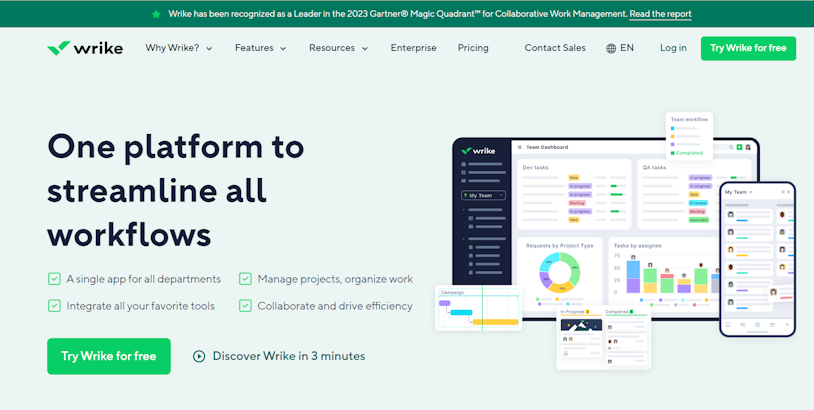
5. Trello:
Trello's simplicity and intuitive Kanban board interface have made it a favorite among teams looking for straightforward project management solutions. Its AI enhancements include automated card movements and deadline tracking, which are useful for teams following agile methodologies.
Key Features:
Visually appealing tool
Based on the Kanban methodology
Highly customizable, and users can tailor their boards to fit their specific needs.
Real-time collaboration tool
Integrates with a variety of other popular business tools.
Available on a variety of smart devices.
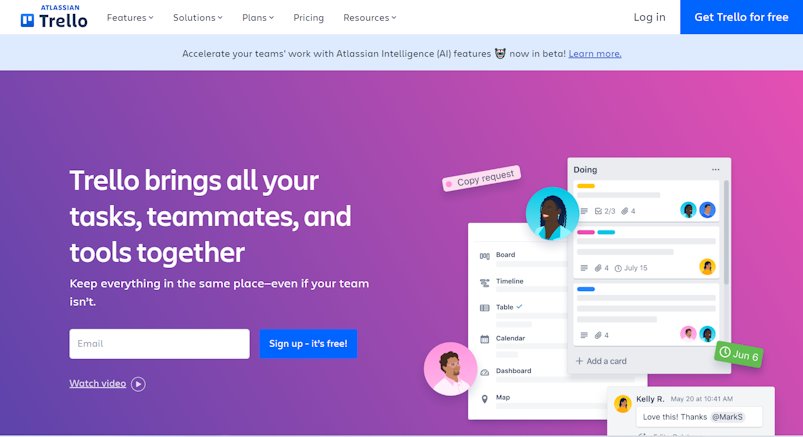
6. ClickUp:
ClickUp is notable for its comprehensive approach to project management, offering features that span from task management to documentation. Its AI-driven suggestions for workflow optimization and team management make it a versatile tool for various project needs.
Key Features:
Comprehensive project management features
AI-driven workflow optimization
Versatile for various project needs
Covers task management with documentation
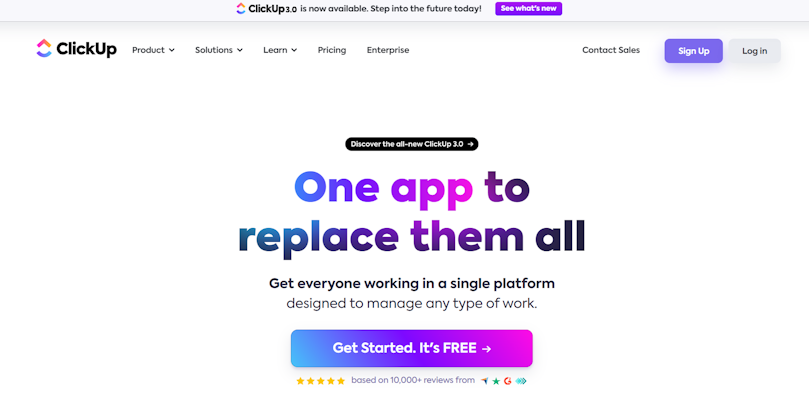
7. Hive:
Hive is recognized for its AI-driven analytics and resource management tools. It offers predictive project planning and automates repetitive tasks, making it a smart choice for teams looking to increase efficiency.
Key Features:
AI-driven analytics and resource management
Predictive project planning
Automation of repetitive tasks
Enhances team efficiency

8. Notion:
Notion is a comprehensive productivity tool that combines note-taking, project management, and collaboration features. It offers a customizable workspace with various functions like task lists, databases, and Kanban boards, suitable for both individual and team use.
Key Features of Notion:
Customizable databases
Task and sub-task organization
Multiple database views
AI-driven document writing
Integrations with GitHub, Slack, Figma
Pricing: Free version, Personal Pro Plan, and Team Plan
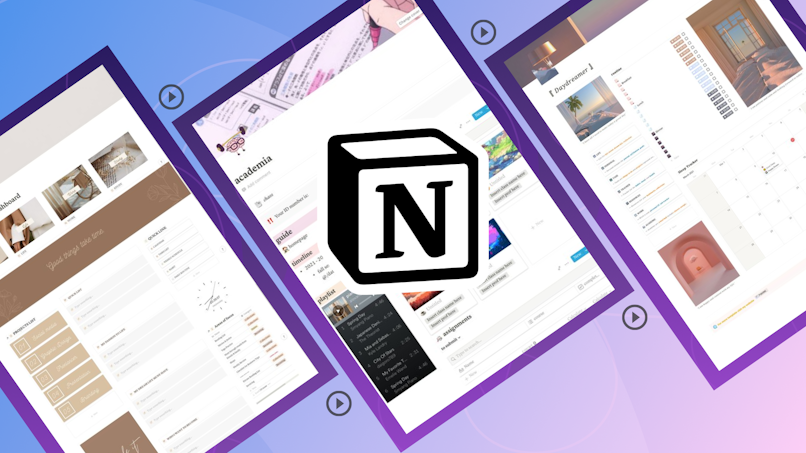
9. Taskade:
Taskade is an innovative AI-powered productivity tool designed to enhance team collaboration and project management. It stands out as a multifunctional platform that integrates various aspects of work management into a unified workspace.
Key Features of Taskade:
Automates over 700 tasks, improving efficiency.
Multi-Device Support: Accessible on Android, iOS, Mac, Windows, and Linux.
Generates to-do lists, flow charts, and project plans in various formats.
AI-Assisted Chat: Enhances brainstorming and task coordination.
Allows structured, hierarchical note-taking.
Integrated Video Conferencing
Offers tailored workspaces with advanced permissions.
Taskade combines AI technology with a user-centric design to enhance productivity and teamwork.
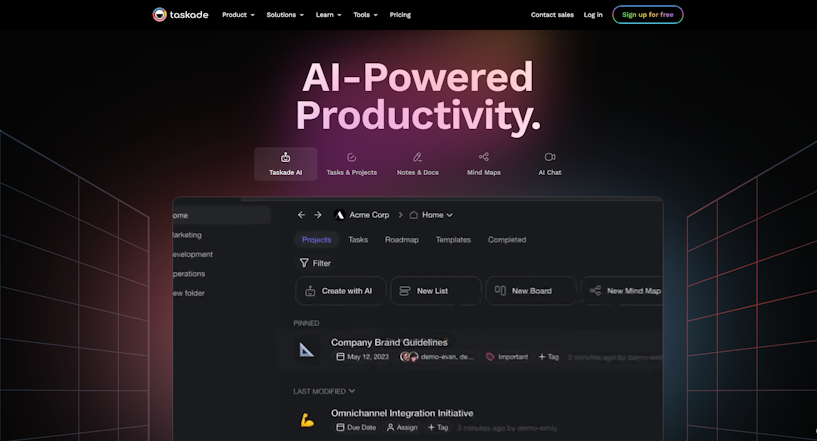
10. Microsoft Project
Microsoft Project is a well-established project management software known for its depth in handling complex, large-scale projects. It stands out for its advanced features, particularly in areas like Gantt chart sophistication, resource management, and advanced reporting capabilities, making it highly capable of detailed project planning and execution.
Key Features of Microsoft Project:
Gantt Charts: For detailed planning and visualization of project timelines.
Efficient resource allocation and workload optimization.
Customizable reports for in-depth project insights.
Effective tracking and management of tasks and deadlines.
Enables collaborative editing of project schedules and tasks.
Seamlessly works with other Microsoft tools like Excel and SharePoint.
These features make Microsoft Project suitable for detailed project planning and management, particularly in large-scale and complex environments.
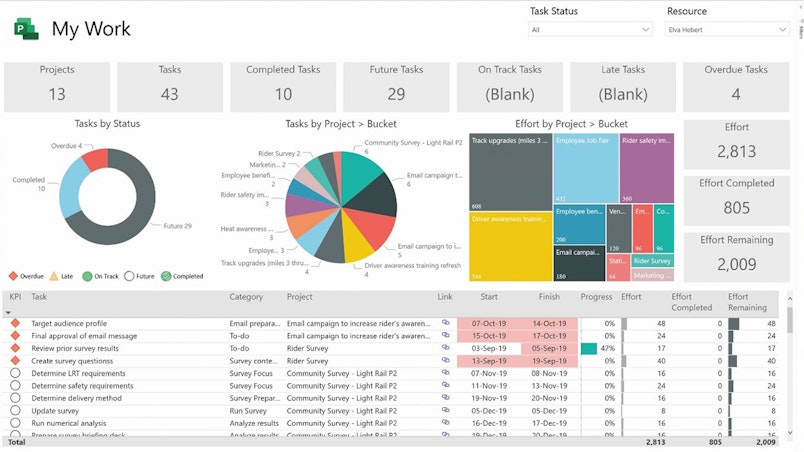
Overall, these AI tools, each with their unique features and strengths, are transforming the landscape of project management. By leveraging AI, these tools not only streamline workflows but also provide insights and foresight that were previously unattainable, enabling teams to achieve their project goals with greater precision and effectiveness.
How AI Tools Transform Project Management Workflows
AI tools have transformed the management of projects by providing innovative methods to improve efficiency and collaboration as well as the process of making decisions. Making use of cutting-edge technologies such as neural language processing and machine learning these AI tools aren't just automating processes, they're also fundamentally changing the workflow of projects.
More Efficiency and Increased Productivity: AI tools increase productivity and efficiency by automating routine, demanding tasks, like data entry as well as scheduling and status updates. This allows team members and managers of projects to concentrate on the most important aspects of their work such as strategy and creative thinking and streamlining processes. AI can drastically reduce the duration of completion and improve overall efficiency.
Predictive Analytics for Informed Decision-Making: One of the most powerful aspects of AI in project management is predictive analytics. These tools look at past and present patterns to forecast the outcomes of projects. They also identify risks and create mitigation strategies that allow project managers to make informed decisions that are based on data while reducing risk and boosting the rate of success of projects.
Improved Collaboration and Communication: AI tools facilitate better communication and collaboration within teams, regardless of their physical location. They provide platforms for real-time updates, feedback, and task coordination, ensuring that all team members are aligned with the project's goals and progress. This enhanced collaboration leads to a more cohesive and efficient workflow.
Customized and Adaptive: AI-driven project management tools are adaptable and can be customized to fit the unique needs of a project or a team. They learn from user behavior and preferences, offering personalized recommendations and insights. This adaptability not only improves user experience but also ensures that the workflows are optimized for maximum efficiency and effectiveness.
AI integration into tools for managing projects is more than technological advancement, it's an entirely new paradigm. These tools empower team members to perform their work more effectively than harder, by providing smart insights, automating routine tasks, and creating a culture conducive to achieving success.
Choosing the Right AI Tool for Project Management
Selecting the perfect software for coordinating projects is a key decision, influenced by various essential factors. The decision-making process is pivotal to ensure that the chosen tool aligns with your project necessities, team dynamics, and organizational objectives.
Grasping the Project's Necessities: The initial step in picking the right tool is understanding your project's specific needs. Are you tackling complex, multi-tiered projects, or do you need a tool for simpler tasks? Identifying the scale, unique requirements, and intricacies of your project will help you narrow down your options.
Considering Team Size and Skills: The size and skill set of your team significantly influence your tool choice. Larger teams with diverse roles might need more comprehensive tools like Monday.com or Jira, known for their wide-ranging features and scalability. Conversely, smaller teams or independent workers might find simpler tools like Trello or Asana more suitable.
Assessing Integration and Compatibility: It's crucial to consider how well the tool integrates with your existing workflows and systems. Seamless integration reduces disruptions and facilitates a smooth transition. Opt for tools that easily blend into your existing software ecosystem.
Budget Considerations: Your budget is an important factor. While some tools offer advanced features, they might also be more expensive. Weigh the benefits against the cost to identify the tool that offers the best value for your investment.
Exploring Flexibility and Customization: The ability to tailor the tool to your specific project management style is key. Tools that offer considerable flexibility and customization, such as ClickUp and Hive, can adapt to your unique project coordination approach.
Prioritizing Support and User Experience: Lastly, consider the user experience. An intuitive, user-friendly tool can significantly enhance team engagement and productivity. Also, consider the level of customer support available, as this can be crucial for addressing any challenges that may arise.
By thoroughly evaluating these factors, you can choose the software for project coordination that not only meets your current needs but also evolves with your future growth.
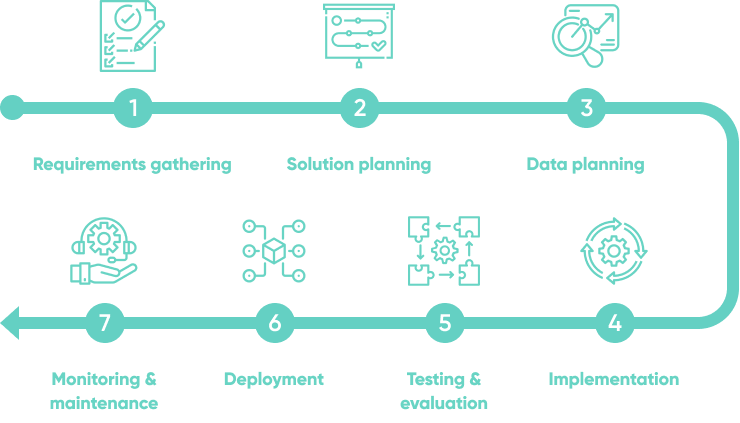
5 Future Predictions of Project Management with AI Tools
The future of project management is inextricably linked with the advancements in AI technology. As we look ahead, several trends and developments suggest a transformative impact of AI on how projects will be managed.
1. Advanced Predictive Analytics: Future AI tools will offer even more sophisticated predictive analytics, enabling project managers to foresee challenges and opportunities with greater accuracy. This will lead to proactive project planning, minimizing risks, and maximizing success rates.
2. Enhanced Automation and Efficiency: AI will continue to evolve in automating complex project tasks. This will not only streamline project workflows but also free up project managers to focus on strategic and creative aspects of project management, thereby enhancing overall efficiency and productivity.
3. More Intuitive User Interfaces: AI tools will become more user-friendly with intuitive interfaces that require minimal training. This will facilitate wider adoption across various industries, making AI-driven project management accessible to all.
4. Integration of AI with Emerging Technologies: The integration of AI with other emerging technologies like the Internet of Things (IoT) and blockchain will create new possibilities for project management. This could lead to more secure, transparent, and interconnected project ecosystems.
5. Personalized and Adaptive Project Management: AI tools will become more personalized, learning from individual user behaviors and preferences to provide tailored recommendations and insights. This will lead to more adaptive and responsive project management strategies
In short, the future of project management with AI looks promising, with technology paving the way for more efficient, proactive, and intelligent project management practices. Embracing these advancements will be key for organizations aiming to stay competitive and successful in the rapidly evolving business landscape.
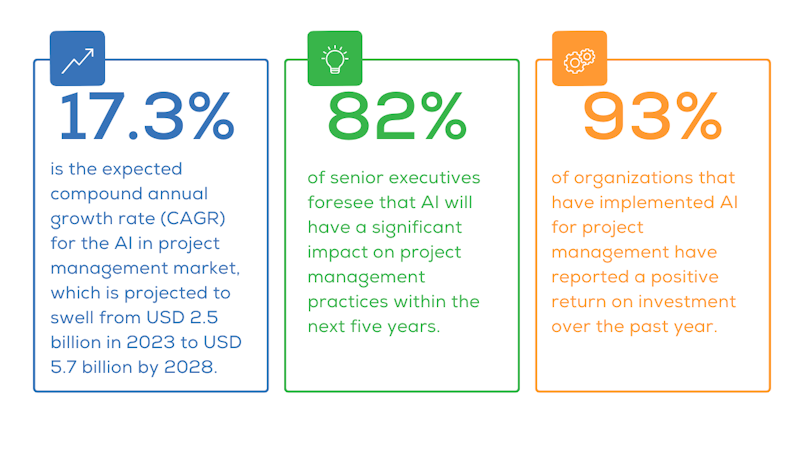
Conclusion
AI tools in project management aren't just a passing trend; they're a transformative force in contemporary project handling. These tools enhance project management through superior analytics, automation, and efficiency, setting new standards for success. They enable teams and individuals across various scales, from large corporations to small agencies, to meet project goals with heightened precision and effectiveness.
Embracing AI in your project management approach is key to staying competitive in the ever-evolving digital world. These tools are designed to cater to diverse needs, ensuring there's an AI solution for every project scenario.
We urge you to step into this AI-driven future of project management. By exploring these tools and integrating AI technology, you'll revolutionize your project management approach. The future is smart, adaptable, and efficient, and it's accessible now.
Begin by evaluating your project management requirements, investigating the discussed AI tools, and selecting the one that aligns with your objectives. Harness AI's potential to guide your projects towards unmatched success.


